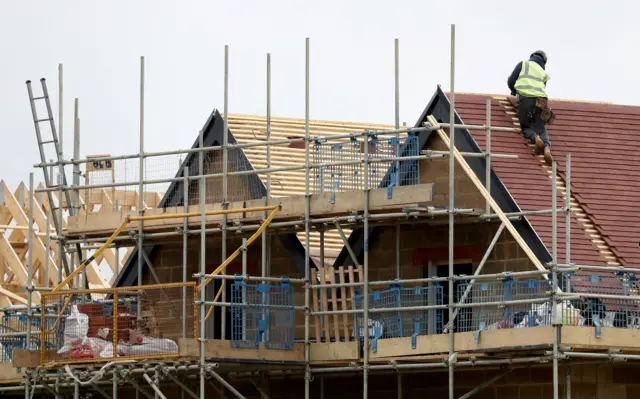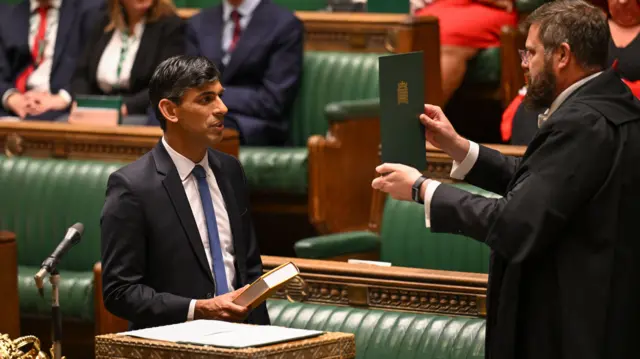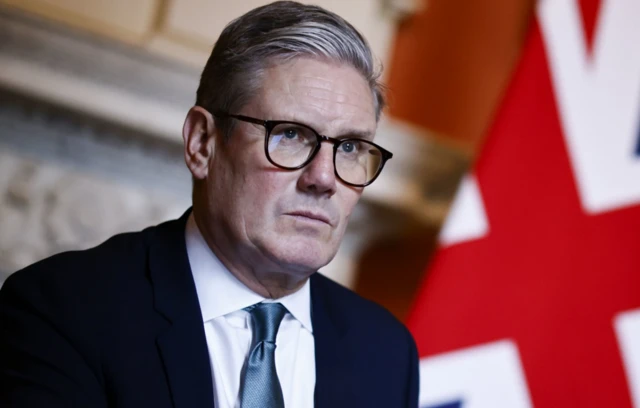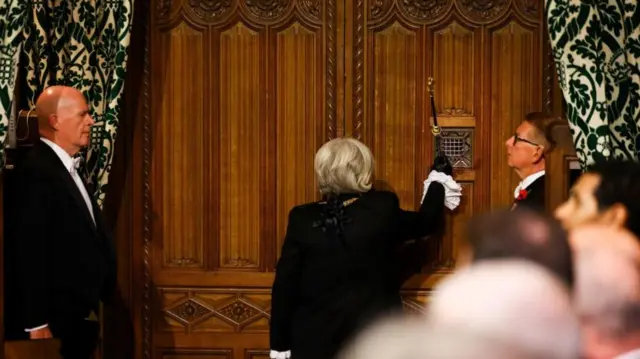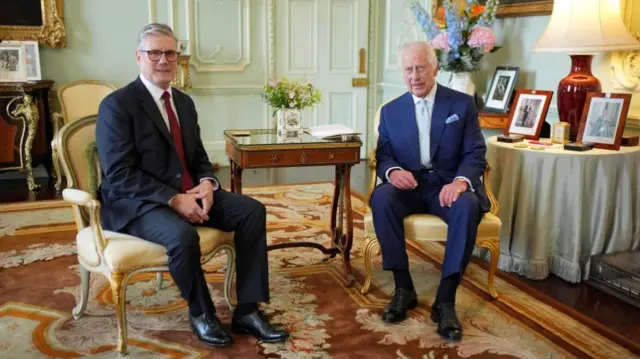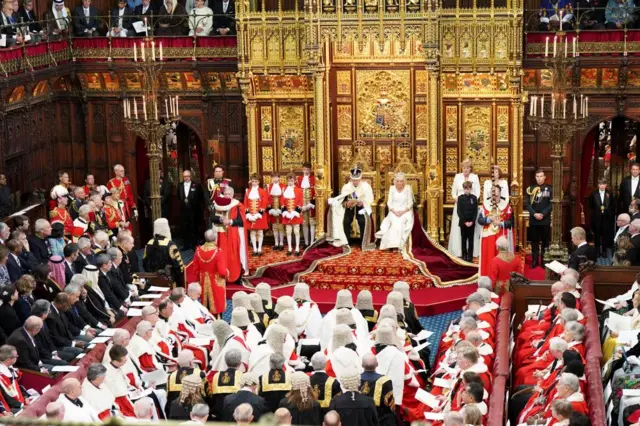Labour's McFadden asked: When will rail nationalisation actually happen?published at 07:51 BST 17 July 2024
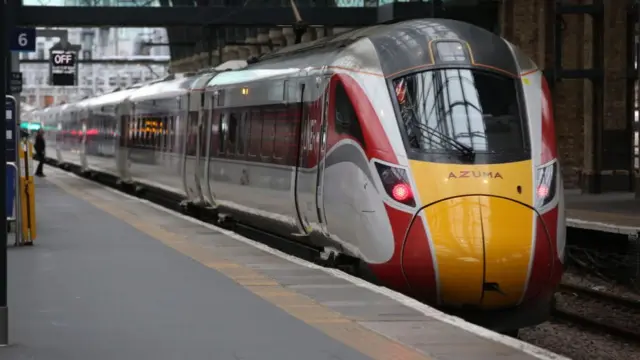 Image source, Getty Images
Image source, Getty ImagesLNER - which operates on the East Coast mainline - is owned by the government, after the franchise was handed back by Virgin
Labour's Pat McFadden tells BBC Breakfast that planning reform, drink-spiking, railway nationalisation, and counter-terrorism will be just some of the areas in the King's Speech later today.
The Cabinet Office minister is pressed on nationalising train services, and how long it will take for the public to see changes.
"As the franchises for individual railways come to an end, [we want to] bring them into public ownership, to create a more integrated system, to simplify the ticketing, to make sure there is more interconnection between companies and to give ourselves a more reliable rail network and rail service.
"We think it is too fragmented and too unreliable and we want to do something about that."
Asked again on a timescale, McFadden says it depends on when the franchise contracts end.
- Read our explainer on rail nationalisation here - including when major franchise contracts end
